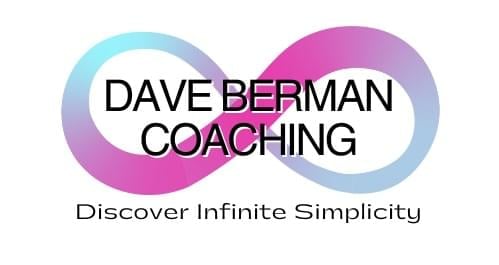Dave Berman Business Consulting
Helping people have a better emotional quality of life
means more effective leadership and decision making,
better performance from staff, happier customers,
and massive return on investment. Corporate events
can range from ten minute ice breakers, to multi-day retreats,
and infinite shapes and sizes in between.
for speaking, customized workshops,
and other innovative approaches to anything below.
How can laughter serve you today?
Team Building
• intentional laughter is a fun and engaging bonding experience for groups
• intentional laughter creates trust, cohesion, compassion, respect, and appreciation of shared experience
• intentional laughter breeds acceptance of self and others
• intentional laughter can introduce metaphors and stories that create, cement, and celebrate culture
• intentional laughter evokes equality and erases hierarchy
• intentional laughter is contagious and cooperative
Emotional Intelligence
• intentional laughter inspires optimism
• intentional laughter reveals the mind/body connection
• intentional laughter helps us see through our BS stories and accept how things really are
• intentional laughter reveals infinite supplies of resilience, confidence, spontaneity, and other gifts are always available within
• intentional laughter makes us better listeners, more accepting, tolerant and compassionate
• intentional laughter provides a new view of who we really are and how life works
Creativity & Problem Solving
• intentional laughter allows us to see familiar things in new ways
• intentional laughter reveals birthrights (like creativity) are unconditionally available in unlimited amounts
• intentional laughter enables us to take life less seriously, go with the flow, and enjoy learning from mistakes
• intentional laughter makes challenges easier and more fun
• intentional laughter is about being, not doing, enjoying the journey NOW with less focus on destination
Learning & Development
• intentional laughter reduces cortisol, lowering stress
• intentional laughter boosts the immune system, keeping us healthier and reducing costs
• intentional laughter normalizes blood pressure by dilating blood vessels
• intentional laughter is a legit cardio and core workout that often creates a euphoric "runner's high"
• intentional laughter reduces pain and increases energy by producing endorphins
• intentional laughter enhances our sense of connection to others by producing oxytocin, offsetting isolation loneliness
• intentional laughter enhances learning and memory by producing dopamine, which also gives us pleasure
• intentional laughter increases serotonin, associated with elevated moods
• intentional laughter expands emotional intelligence with experiential learning
• intentional laughter has produced a lot of anecdotal evidence of healing serious illnesses (as documented in my many videos)
Contact me about ways we can
work together either 1:1, with a team,
or for your entire company or event.
For corporate inquiries in Saigon click here
Dave Berman Business Consulting
Helping people have a better emotional quality of life
means more effective leadership and decision making, better
performance from staff, happier customers, and massive return
on investment. Corporate events
can range from ten minute ice breakers, to multi-day retreats,
and infinite shapes and sizes
in between.
for speaking, customized workshops, and other innovative
approaches to anything below.
How can laughter serve you today?
Team Building
• intentional laughter is a fun and engaging bonding experience for groups
• intentional laughter creates trust, cohesion, compassion, respect, and appreciation of shared experience
• intentional laughter breeds acceptance of self and others
• intentional laughter can introduce metaphors and stories that create, cement, and celebrate culture
• intentional laughter evokes equality and erases hierarchy
• intentional laughter is contagious and cooperative
Emotional Intelligence
• intentional laughter inspires optimism
• intentional laughter reveals the mind/body connection
• intentional laughter helps us see through our BS stories and accept how things really are
• intentional laughter reveals infinite supplies of resilience, confidence, spontaneity, and other gifts are always available within
• intentional laughter makes us better listeners, more accepting, tolerant and compassionate
• intentional laughter provides a new view of who we really are and how life works
Creativity & Problem Solving
Learning & Development
• intentional laughter opens receptivity to new ideas
• intentional laughter produces dopamine, associated with pleasure, learning and memory
• intentional laughter creates a healthy, pleasant, cooperative environment for teachers and students
• intentional laughter facilitates embodied understanding, beyond intellectual knowledge
• intentional laughter life lessons are revealed by implication rather than application (ripple effects, not by rote)
• intentional laughter encourages insights, later trusted as instinct without requiring techniques
• intentional laughter is not a mastery model, helping us embrace progress over perfection
• intentional laughter helps us accept and appreciate paradoxes are not riddles to be solved
• intentional laughter attunes us to notice synchronicities, symbolism, and often unseen connections
• intentional laughter points to many self-correcting mechanisms that allow us to get out of our own way
• intentional laughter transcends cultural and language barriers

